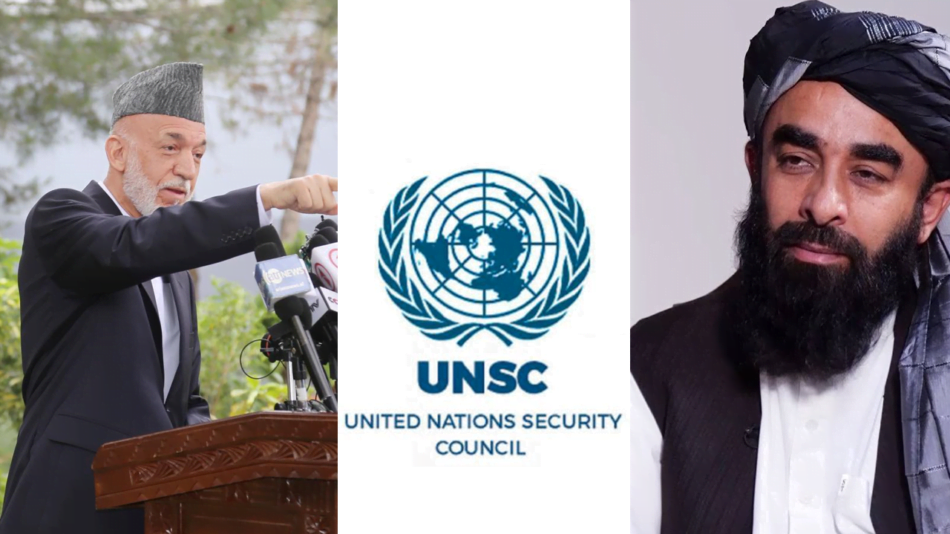Former Afghan President Hamid Karzai has expressed support for the United Nations Security Council’s resolution concerning Afghanistan, viewing it as a commitment of the international community to a peaceful and stable Afghanistan. Karzai, who has been residing in Kabul since the Taliban’s return to power, emphasized in his Monday statement that the resolution recognizes Afghanistan’s sovereignty, independence, and territorial integrity. He sees it as reflecting the global community’s aspiration for a peaceful, stable, prosperous Afghanistan.
Karzai underscored the importance of national consensus and public will for enduring peace and stability. He highlighted the vital role of education for both boys and girls and the active participation of women in societal affairs as fundamental to Afghanistan’s development. Additionally, Karzai urged the Taliban government to collaborate to restore Afghanistan’s international standing, affirming that the Afghan people themselves are pivotal in overcoming challenges and achieving lasting peace and stability.
Taliban’s Response: A Narrative of Discontent
The Taliban government, through its Ministry of Foreign Affairs, stated dissatisfaction with the Security Council’s decision, criticizing the lack of consultation and opposing the appointment of a special envoy for Afghanistan.
Zabihullah Mujahid, the Taliban government’s spokesperson, stated on Afghan State Radio that the existing United Nations Assistance Mission in Afghanistan (UNAMA) is sufficient, questioning the need for an additional special UN representative and asserting the absence of a crisis that would necessitate such an appointment.
Opposition Groups Rallying for Resolution’s Promise
Several opposition groups in Afghanistan have welcomed the resolution. The Afghanistan Liberation Front, comprising former government security forces, regards the resolution as a positive development, highlighting that past interactions with the Taliban have not effectively reduced the crisis. The National Resistance Front, led by Ahmad Masoud, lauded the resolution as a systematic international response and supported the appointment of a special representative for Afghanistan. Similarly, the National Resistance Council for the Salvation of Afghanistan, consisting of former government figures, views the resolution as an opportunity for Afghanistan to receive significant international attention. They stress the need for a UN special envoy well-versed in Afghan affairs and capable of impartially managing the situation.
UN Resolution’s Approval and International Stances
The resolution, drafted by the United Arab Emirates and Japan, received thirteen affirmative votes out of fifteen Security Council members, with China and Russia abstaining. The resolution requests the appointment of a Special Envoy for Afghanistan focusing on human rights and gender expertise while underscoring the critical role of UNAMA. Representatives from China and Russia linked their abstention to appointing a new special representative, urging consultations with the Taliban government and Security Council members on the appointment. The Russian representative indicated that Russia would not support the special representative without consultation with Afghanistan’s ruling authorities.
Japan’s Foreign Press Secretary, KOBAYASHI Maki, emphasized Japan’s proactive role in the resolution’s adoption and expressed hope that it would contribute to improving the Afghanistan situation, especially regarding human rights and political inclusiveness.
This diverse spectrum of reactions to the UN Security Council’s resolution highlights the complexity and varying perspectives in shaping Afghanistan’s future. This indicates the challenges and opportunities in the nation’s path toward stability and inclusivity.





